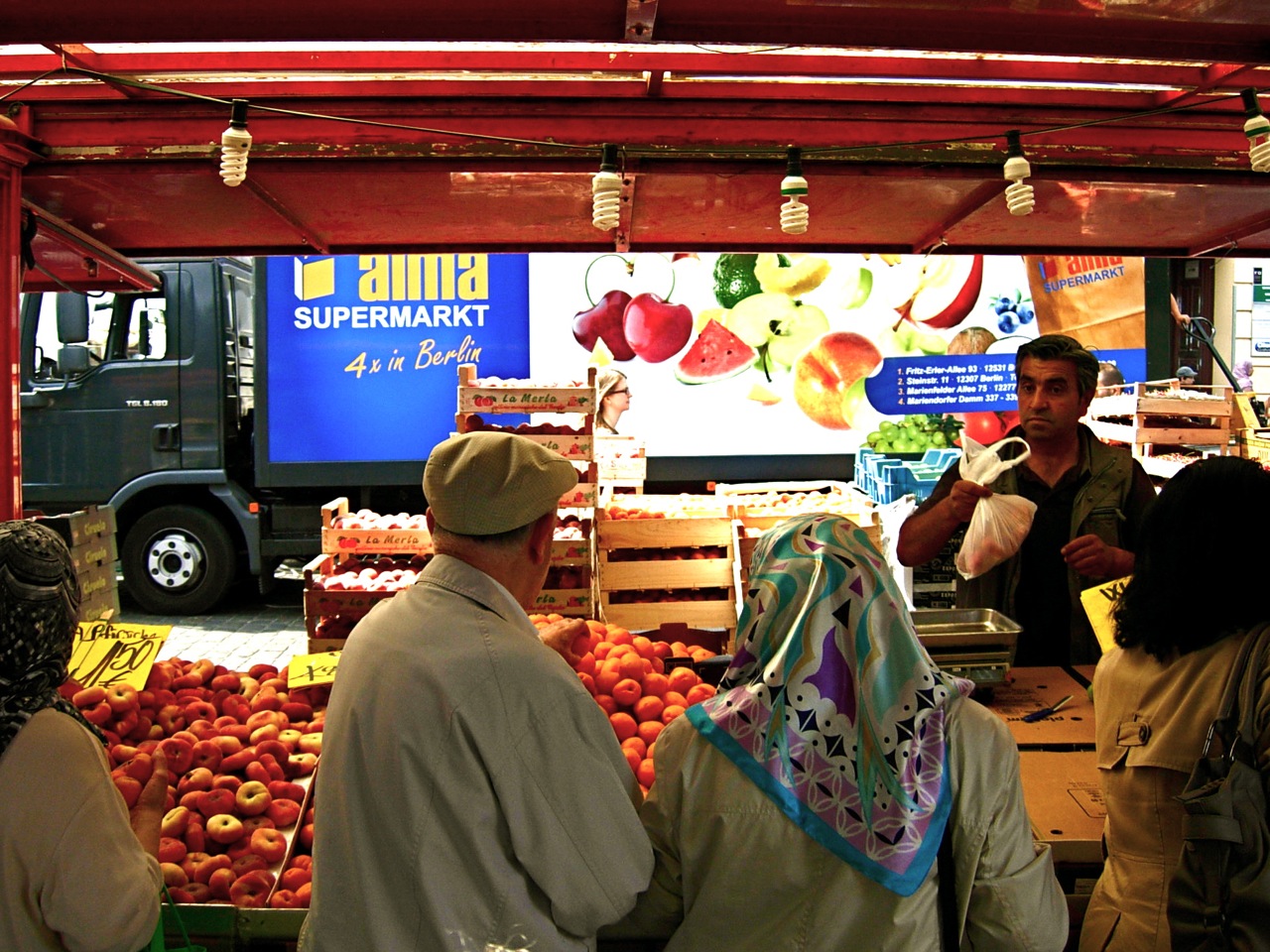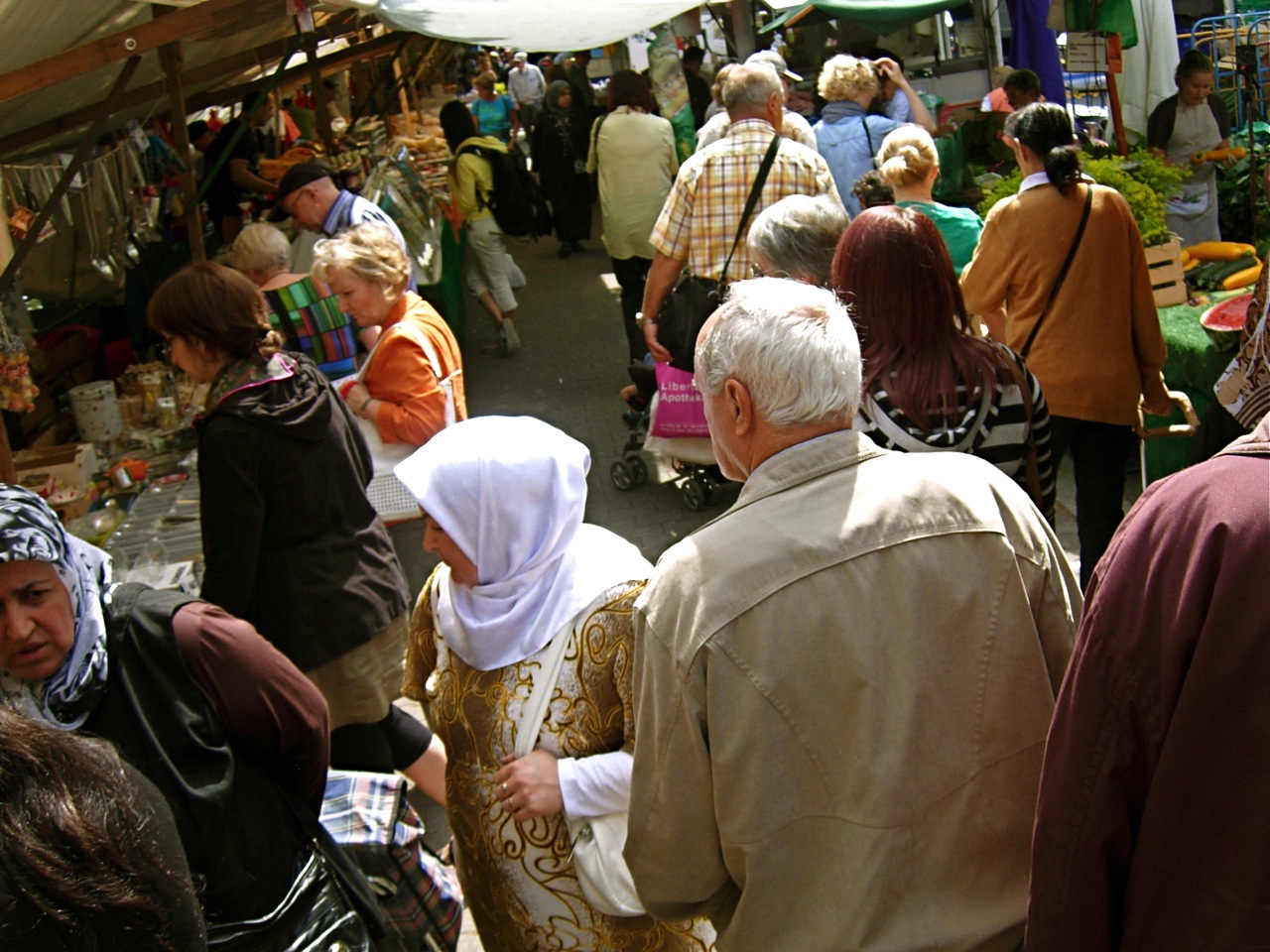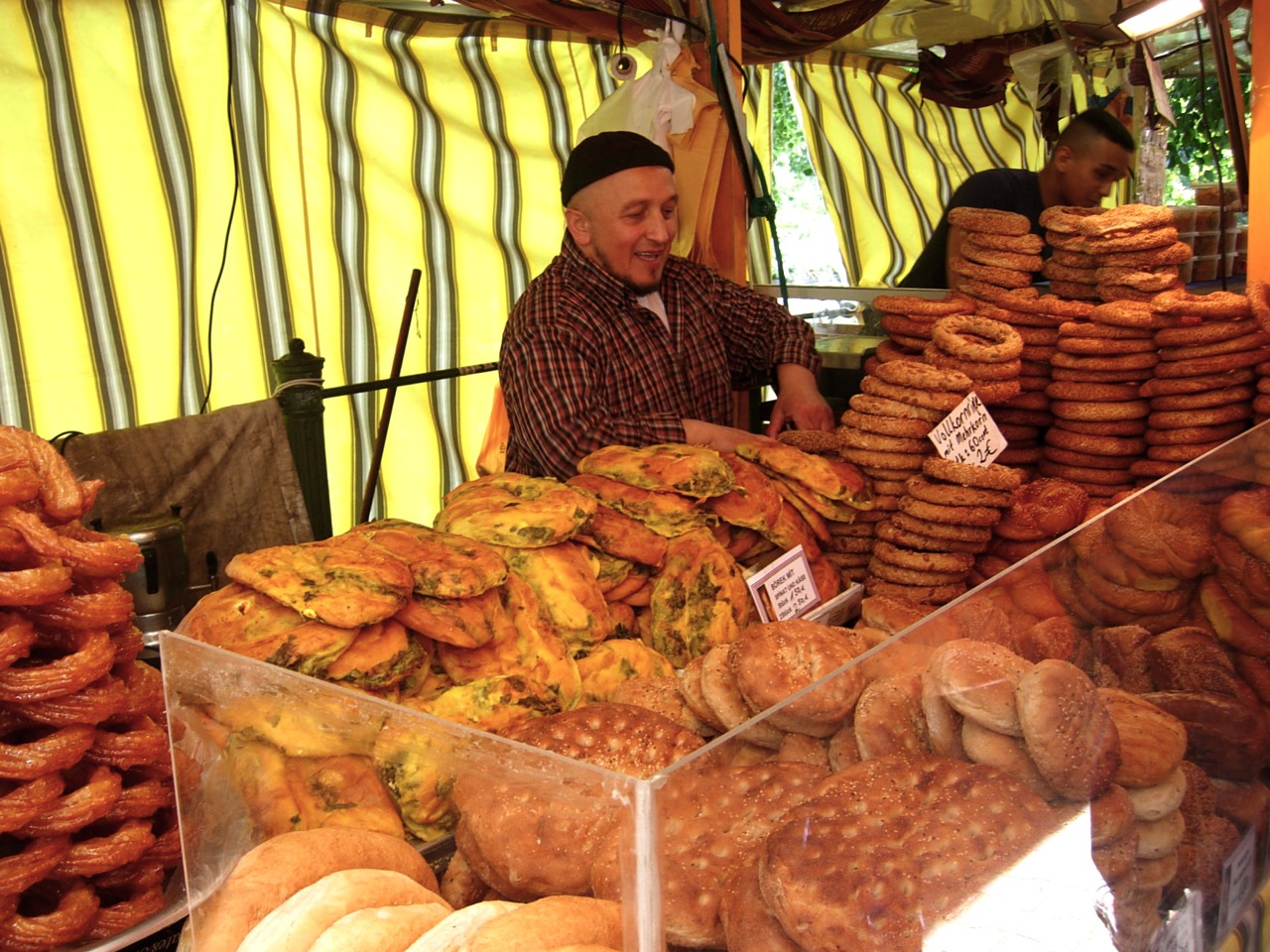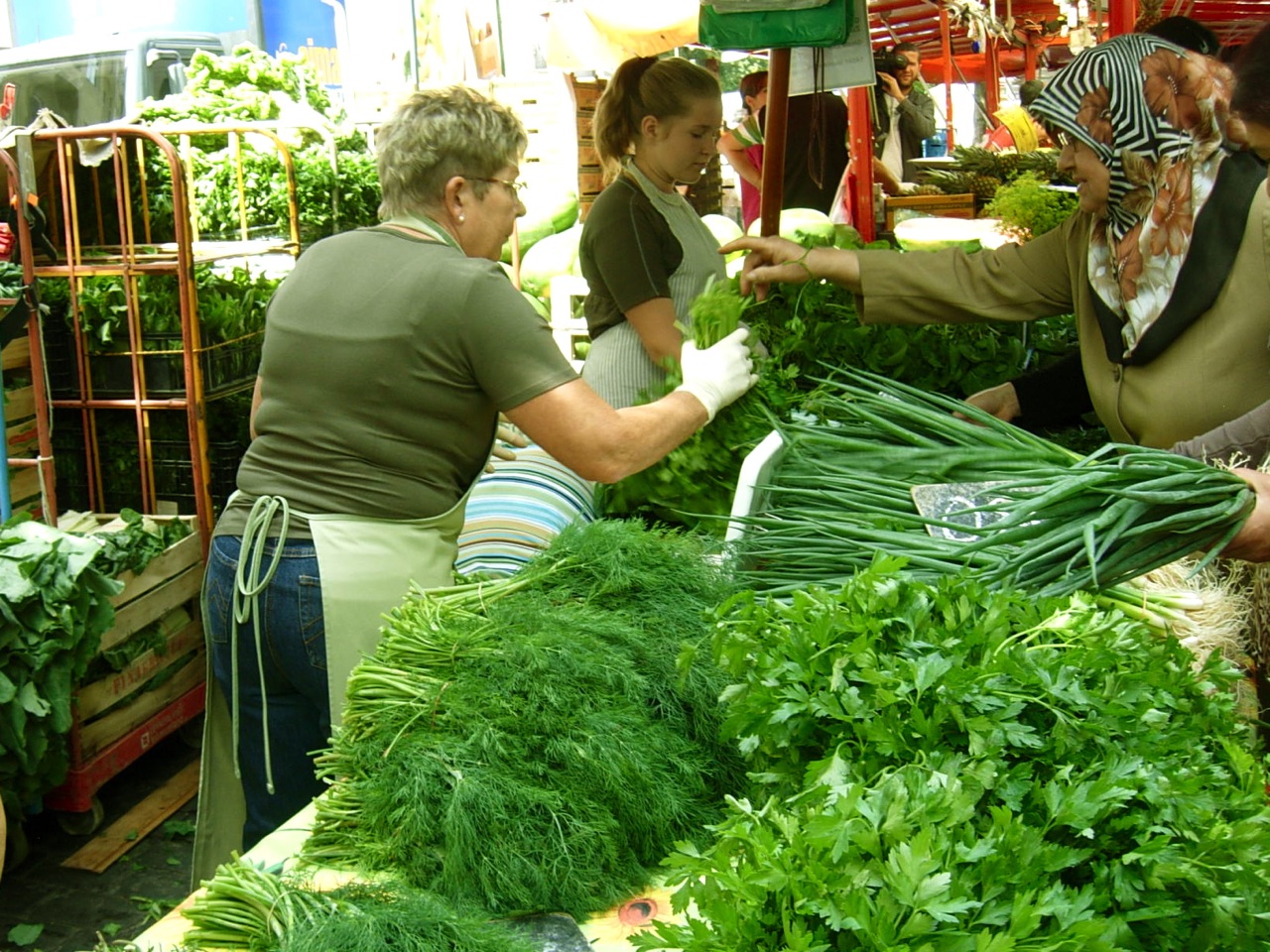A German Market on the Maybachufer
 On a Tuesday or Friday, I see the veiled women of Neukölln and Kreuzberg making their way to the canal, and returning, their strollers weighed down, hanging with plastic bags that are red-orange in colour. The watermelons look juicier inside, so do the cherries, but the hue makes the cucumbers look slightly odd.
On a Tuesday or Friday, I see the veiled women of Neukölln and Kreuzberg making their way to the canal, and returning, their strollers weighed down, hanging with plastic bags that are red-orange in colour. The watermelons look juicier inside, so do the cherries, but the hue makes the cucumbers look slightly odd. I have never understood why many of the blue-collar ‘German’ families of Neukölln prefer to shop at the chains Lidl or Aldi for their vegetables when they have this market at their doorstep. Compare Lidl’s dessicated trio of peppers, like the tricolour flag of a distant country that exports its produce by air freight, to the sinuously fragrant produce of the market (or even that of the local Turkish supermarkets).
I have never understood why many of the blue-collar ‘German’ families of Neukölln prefer to shop at the chains Lidl or Aldi for their vegetables when they have this market at their doorstep. Compare Lidl’s dessicated trio of peppers, like the tricolour flag of a distant country that exports its produce by air freight, to the sinuously fragrant produce of the market (or even that of the local Turkish supermarkets).
Where you shop matters here in that it signals something about your social status or your community affiliation, and these considerations trump a need for (or perhaps understanding of) fresh food. I conjure a stereotype for myself, of the Spießbürger ‘German’ shopper staring into the market, the claustrophobic tunnel of stalls, unnerved by the chaos, by so many foreign voices and languages, the fear of not being able to communicate or of being required to bargain (you’re not), or of being made to feel foreign in his ‘own’ country.
Let him eat his rock hard pears wrapped in plastic. It is at least some small punishment for small-mindedness!
I hate the vocabulary of the market, I’m tumbling into it myself.
I hear someone say, haven’t you noticed how all the organic food stands are run by Germans and not Turks? I hear someone else say, German bread is still so much better than Turkish bread–too much sesame! Schau mal, these Mediterraneans care so much more about food than we do, they have saved Berlin from Prussian meat and potatoes.
Turks? Non-Turks?! How are German citizens born in Germany still called Turks?
Even the well meaning folk fall into the vocabulary–even the organisers of the market, who call it a ‘Turkish market’–even when plenty of non-‘Turks’ run stalls.
And yet these words are helpful in describing communities that, at least in this neighbourhood, remain largely (but not entirely) segregated. Is the market popular among the ‘Turks’ partly because it is more comfortable culturally than the supermarket aisle? How else do I explain the popularity of stands run here by local ‘Turkish’ supermarkets selling the same food one could buy as conveniently up the street? Sometimes, I go to these empty supermarkets run by ‘Turkish’ families on a market day and find produce as good, perhaps cheaper, and without the hassle. Or is the market buzz part of the attraction? More likely, it’s the end-of-day flash bargains, whole kilos of tomatoes for pennies, that keep the market full.
I am weighed down with mint, olives and feta, parsley and watermelon. I wish I had a stroller, it would make getting home easier. The fluorescents in the elevator reflect on the packages, everything is rosy. I cut up all my ingredients and make an unorthodox watermelon mint and feta salad, tossing it in olive oil, to eat with the toasted flat bread, and maybe a pint of Augustiner.
If someone asks me how I thought of it, I tell them it’s typically Deutsch.




